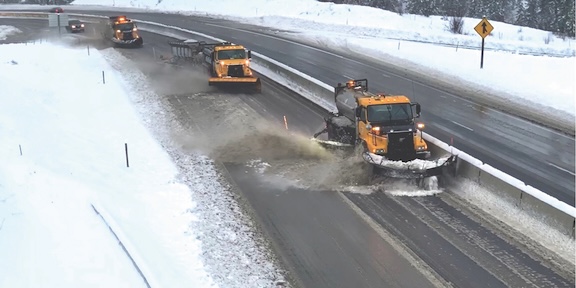
A package of taxes and fees aimed at funding road maintenance in Oregon has passed the Oregon House, clearing a significant hurdle in the legislative process. The bill, which narrowly secured a vote of 36-12, is designed to prevent potential layoffs at the Oregon Department of Transportation and will now move to the Senate for consideration on September 3, 2024.
After an earlier attempt failed during the regular legislative session, this vote marks a pivotal moment for the state’s transportation infrastructure. The package, which totals $4.3 billion over the next decade, includes a temporary payroll tax increase to support public transit. While the Democratic majority in the House supported the measure, the final vote reflected a division along party lines.
Rep. Mark Gamba of Milwaukie commented on the bill’s limitations, stating, “This bill keeps the lights on, but it doesn’t light the path forward.” The legislation aims to address immediate needs, such as keeping roads clear of snow and filling potholes, but may not resolve long-term infrastructure challenges.
Key changes proposed in the transportation package include:
– An increase in the gas tax from 40 cents to 46 cents per gallon, effective January 1, 2026, projected to generate an additional $90 million annually.
– A rise in annual vehicle registration fees for passenger vehicles from $43 to $85, and for utility vehicles from $63 to $105.
– Doubling the payroll tax that funds public transit from 0.1% to 0.2% until January 1, 2028.
– Implementation of a mandatory road usage charge for electric vehicles by 2031, requiring participation in the OReGO program or a flat annual fee of $340.
The proposal elicited mixed reactions among lawmakers. Rep. Susan McLain, a key architect of the previous failed package, called the current proposal a pragmatic approach to ensure that vital infrastructure remains functional. She stated, “This additional funding is absolutely a lifeline for their communities and their citizens.”
While the package received support from some members, such as Rep. Cyrus Javadi, who highlighted the necessity of maintaining safe roads, it also faced strong opposition. Rep. Annessa Hartman expressed concern over the financial burden on families, recalling her own experiences of choosing between essential expenses.
House Republican Leader Christine Drazan presented a stark contrast, showcasing a substantial volume of public dissent. She noted that 94% of the written testimonies submitted by Oregonians opposed the bill, emphasizing the importance of listening to constituents.
Opponents like Rep. E. Werner Reschke cautioned against raising taxes in a climate where state revenue forecasts suggest a potential deficit. He argued that the current proposal might create more severe economic issues in the future.
Despite the contentious atmosphere, Rep. Paul Evans implored his colleagues to act swiftly, stating, “Right now, ODOT has a sucking chest wound. We can all sit around and watch the patient die.” His comments underscored the urgency of addressing Oregon’s infrastructure needs as inclement weather approaches.
The upcoming Senate vote will determine whether these proposed changes will take effect, with both supporters and opponents continuing to voice their positions. As the debate unfolds, the implications for Oregon’s transportation future remain uncertain, highlighting the challenges of balancing immediate needs with long-term fiscal responsibility.







